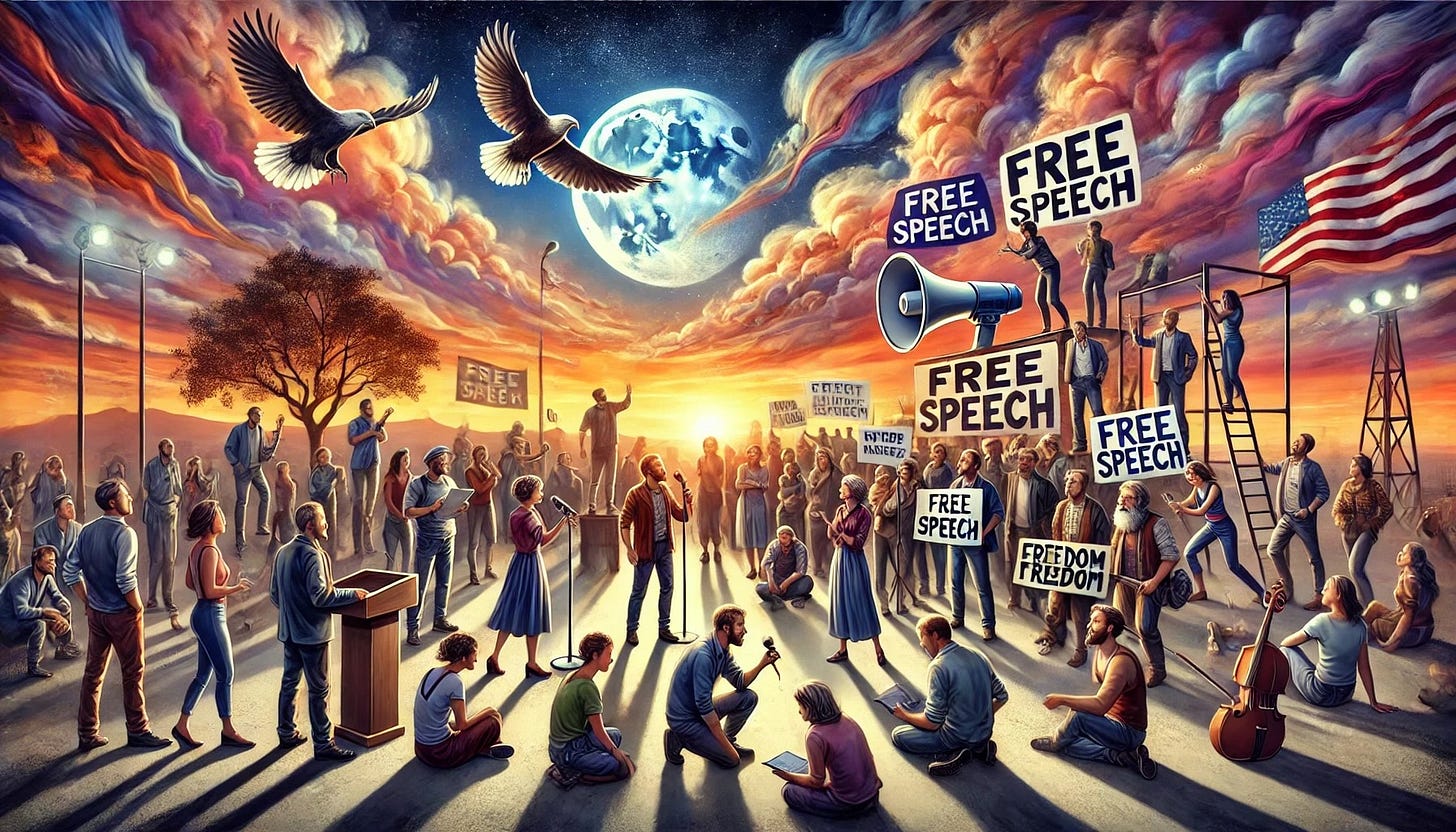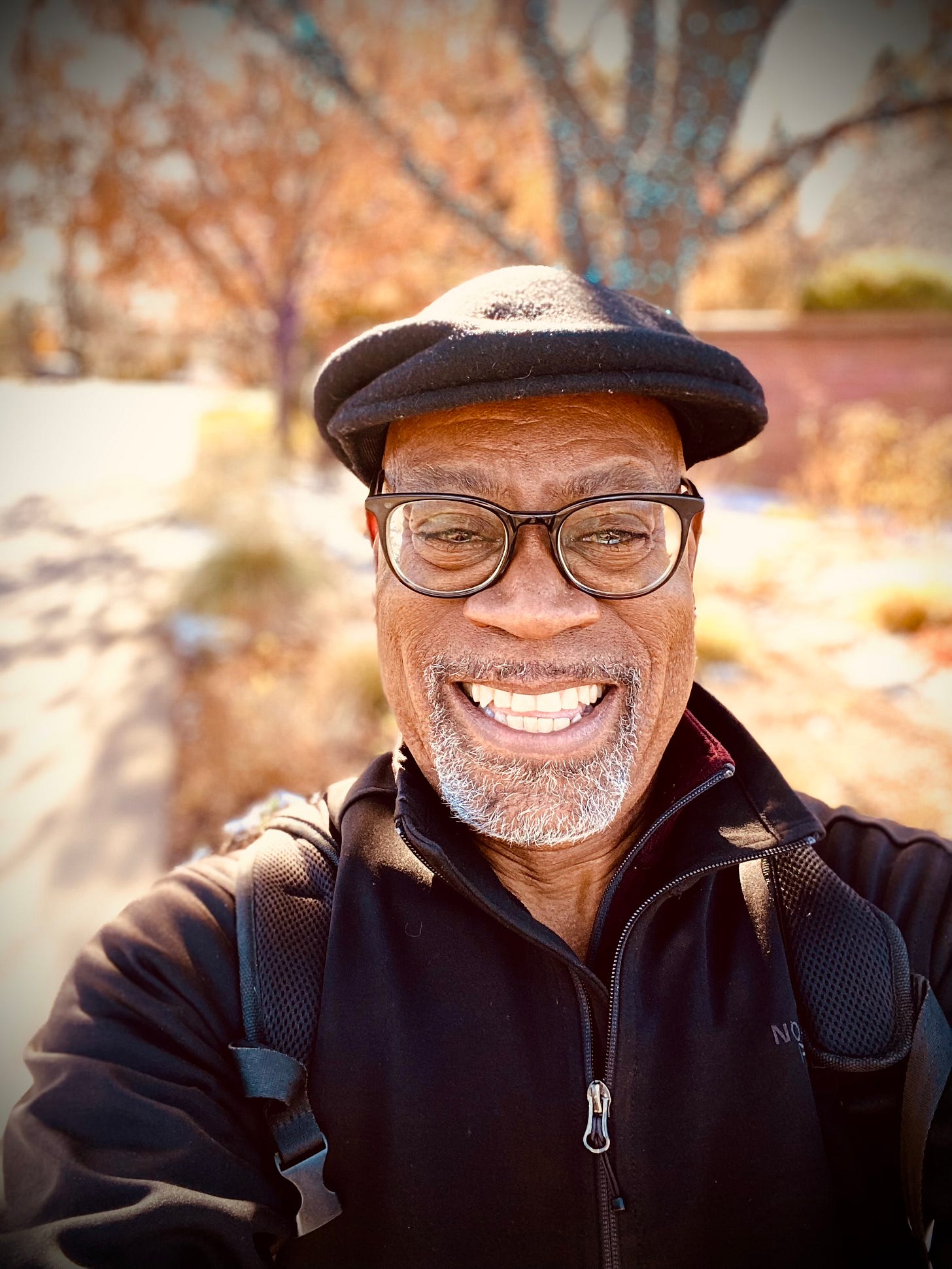The Power of Words
Lauren Sonnenberg on Free Speech, Book Bans, and Finding Humanity Through Literature
An Oakland, California based writer and recent law school graduate, Lauren Sonnenberg’s path has been anything but conventional. After cutting her teeth in the media world, she’s now poised to return to the business side of news, driven by her deep passion for the First Amendment and her love for literature.
When we agreed to talk, the energy was palpable. I kicked things off by asking her to recall a moment from childhood that sparked her love for reading. Without missing a beat, she dove right in:
“My parents are big readers,” she said, her eyes lighting up. “Some of my earliest memories are of my mom reading the entire Harry Potter series out loud to us. There’s no question that shaped how I view books now.”
She continued: “And let’s be real—there’s no way I’d be this passionate about free speech if I hadn’t had those experiences growing up.”
Our conversation flowed effortlessly, shifting between personal anecdotes and heavier topics, like the impact of book bans. Lauren didn’t hold back. “It’s dangerous,” she said. “When you start limiting the availability of information, you’re doing more than censoring ideas—you’re shaping entire futures.”
Lauren’s passion for the subject of free speech was undeniable, and I could see how the threads of her personal and professional life were intricately woven together. We moved quickly from her childhood love of books to how that evolved as she grew older.
“How has your reading journey changed over the years?” I asked, sensing that this was a point of transformation for her.
She laughed, “Well, reading used to be competitive for me. I remember being obsessed with winning the Scholastic Book Fair competition back in elementary school. It was all about numbers—how many books I could read, how fast I could do it. But now, reading is like this guiding voice. It’s a way for me to dig deeper, whether it’s into a creative legal argument or simply understanding different perspectives. I’m no longer racing to finish a book; instead, I let each one leave a lasting mark on me.”
“Books are a way for me to piece together the bigger picture of humanity. It’s impossible to be an advocate for something like free speech without first understanding the diversity of ideas that make up our world. That access to a wide range of voices—that’s something we can’t take for granted.”
As the conversation continued, we dove into some of the books and authors that had shaped her worldview. “Joan Didion’s “The Year of Magical Thinking” really helped me when I lost my twin. I often gift a copy to friends who’ve lost loved ones because it gave me language when there seemed to be none.”
Her voice softened, but the conviction remained strong. “Books do that, you know? They give you the words you didn’t even know you were searching for.”
I asked her about her thoughts on the rising trend of book bans across the country, and suddenly, the lawyer in Lauren kicked in. “It’s disturbing,” she said, almost with a sense of urgency. “It’s not just about the content that’s being banned, but who’s behind it and why. Are we trying to control what our kids learn, or are we trying to control what other kids are exposed to? Banning ideas doesn’t make them disappear—it only suppresses them until they explode in unexpected ways.”
Lauren’s words hung in the air, a poignant reminder of how deeply personal—and yet universal—this battle over access to information has become. She recounted a memory of visiting Berlin as a child, seeing the monument to the books burned by the Nazis, and recalling the inscription from Heinrich Heine: “Where they burn books, they will ultimately burn people.” The weight of that statement lingered.
“I don’t think parents pushing for book bans pose the same threat, but I can’t help but worry about the long-term impact of such control over information. What happens to a generation that grows up only knowing half the story?”
Lauren’s sharp intellect and candid passion for literature, law, and free speech were on full display throughout our lively exchange. As the conversation came to a close, I couldn’t help but feel inspired by her unwavering commitment to defending our fundamental rights—and by the way books had become a vital part of her advocacy.
She summed it up perfectly, her voice full of conviction: “Books connect us. They challenge us. And they give us the tools we need to fight for what matters.”
Join Us Today and Support Independent Writing
As a supporting member of "Great Books, Great Minds," you'll dive deeper into a world where your book passions thrive. For just $6 a month or $60 a year, you unlock exclusive access to a close-knit community eager to explore groundbreaking reads.
💥 You can contribute to my independent writing journey via the “subscribe” button above . Or you can tip me some coffeehouse love here (dirty chai fan here).
Your support is appreciated! In the meantime, stay thirsty for a great book.
Diamond-Michael
Independent Journalist and Global Book Ambassador







love this interview!!!
When I was a kid, our internet was a set of World Book Encyclopedias. We never had to worry about antivirus software or hard drive failures, but we read those things by the hour.
At this point in my life, I collect books the way peppers store supplies. If the internet gets nuked, I have enough analog books to last for the rest of my life.
Books,books,books. And if you don’t like the content of a book, don’t read it.